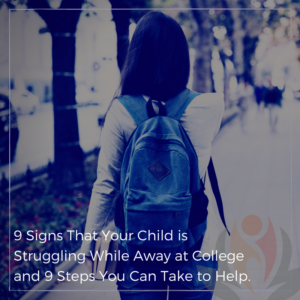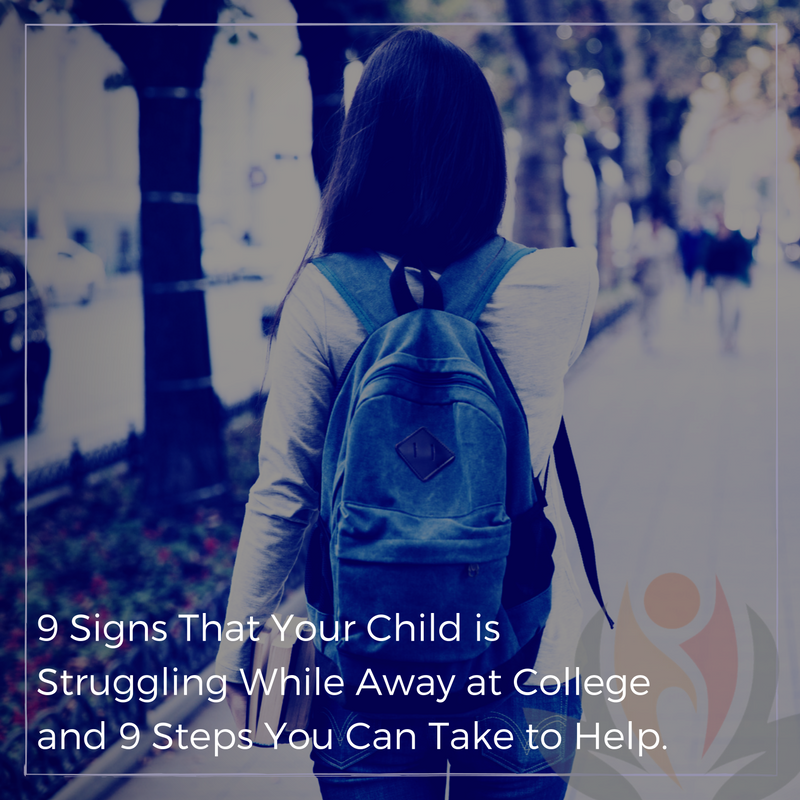 Recently we have noticed a marked increase in calls from distressed and anguished parents seeking help for their distressed, depressed, withdrawn and anxious college students. A number of these students are either struggling while away at school, have returned home mid-semester taking a leave of absence or planning not to return to school at all after winter break. It’s a challenging time for all replete with worry, shame and feelings of failure for all involved.
Recently we have noticed a marked increase in calls from distressed and anguished parents seeking help for their distressed, depressed, withdrawn and anxious college students. A number of these students are either struggling while away at school, have returned home mid-semester taking a leave of absence or planning not to return to school at all after winter break. It’s a challenging time for all replete with worry, shame and feelings of failure for all involved.
Attending a 4-year college away from home as long been regarded as our cultural equivalence of the Australian walkabout, that rite of passage from adolescence to adulthood, that culmination of a childhood well spent and the necessary step on the way to adult professional success. Yet this rite of passage of attending a 4-year college away from home may not be the best life path for everyone. Or it could be that college that your child first attends may not be the best environment for them and considering a transfer to another school may be warranted.
Heading off to a tree-lined campus away from home is a huge life change and transition wrought with a lot of pressure, a variety of stressors and challenges as well as excitements. And while it is through the productive managing of and working through the stress and challenges we encounter in life that we discover something new in ourselves, gain a sense of self-competency and grow as human beings, certain degrees of stress and challenges are just way too much to handle.
So how can you tell if the stress and challenges your child is experiencing while at school is of the typical workable variety or an indication that they are not where they should and that a bigger problem is lurking? Consider these signs:
- Weight loss or significant weight gain
- Change in sleep patterns, either sleeping too much or broken sleep or difficulty falling to sleep
- Change in grooming habit, either poor grooming or heightened interest in and fixation on appearance, markedly different than before college
- Shortened communication with or lack of response to and avoidance of phone calls, emails or texts from close family and friends
- Increase of phone calls, emails, texts to close friends and family indicating heightened distress and homesickness that doesn’t seem to dissipate or resolve
- Avoidance of college-related topics in conversation
- Out of character behavior when visiting home from school such as isolating self in bedroom when previously was more engaged socially and with family, withholding information when previously was more open and sharing
- Drug and alcohol use or surreptitious behavior
- Missing classes and low grades
If your child is experiencing or exhibiting any of these symptoms or behaviors, something is invariably going on for them and further conversation and clarification is called for. Your child may be struggling for any number of reasons – from lack of preparedness, lack of motivation, lack of perseverance, too much partying, difficulty making new friends, mental or emotional difficulties, or just plain homesickness. Whatever the reason, it can be addressed and worked on. Here’s what you can do:
- Manage your and their expectations. Whatever expectations you had prior to your child heading off for school, shelve them for now if you see your child struggling. Chances are they know they are struggling while also contending with fears of disappointing their families which can compound any issues they are experiencing.
- Provide compassion, understanding and open communication. Simple statements like, “I know this must be a difficult time for you,” or, “whatever you are going through, we are here to help support you, no judgment.”
- Try to limit additional stress in their lives as struggling to adapt to a new school encounter is already stressful in and of itself. Don’t assume just because they are home now they can automatically function the way they had prior to leaving for school.
- Keep the kudos coming. Let them know that you are proud of them for trying to go to college in the first place and remind them of the strides and achievements they have already made and continue to make. Celebrate any small accomplishment that you see them make.
- Don’t try to solve all of their problems. If your child is struggling this is an opportunity to teach them how to manage challenges. Include them in the question of what they would like for themselves going forward and support them in their research for what steps need to be taken to get there.
- If your child is feeling ambivalent or adamant about not continuing with college, suggest that they take a leave of absence for a semester before making a final decision. Taking time to think, reflect and explore options will help your child make a more informed decision.
- Advise your child to seek professional and psychological help and/or career counseling.
- Consider including other siblings, family members and friends who your child may trust and look up to who can be a pillar of emotional support and provide additional positive guidance to them.
- Don’t forget to show them and tell them how much you love them whether they go to a 4-year school or not. Never let them doubt in their lovability.
Don’t forget that going away to college isn’t just about learning how to make new friends and juggling college courses and homework. There are many other “responsibilities” including exercising self-discipline and self-motivations for doing laundry, budgeting, management of time, adjusting study skills as well as practicing self and home hygiene.
And with the holidays upon us now and your college-bound children set to return home for what can be a long and languid winter break, if they haven’t returned home earlier this year, having this time together and what you do during this time together while on winter break can play a significant role in how they can thrive during the remainder of the year, while away or home or pursing plan B.



